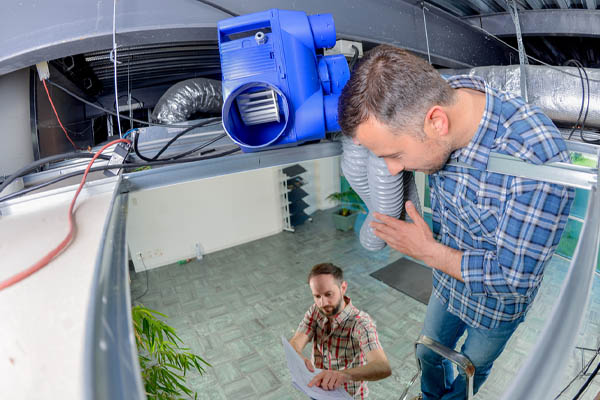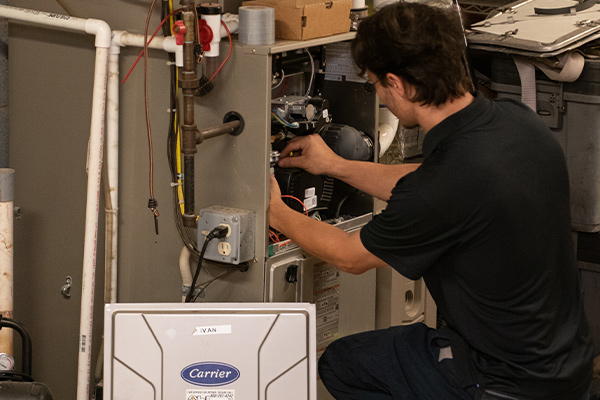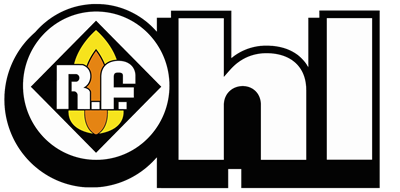Why Is Home Ventilation So Important?

Comprehending the right amount of ventilation in your home is crucial for sustaining an environment that is healthy, comfortable, and energy-efficient. Proper home ventilation is vital to preserving the quality of indoor air, as it effectively eliminates contaminants, dampness, and unpleasant smells. Additionally, it plays a significant role in temperature control, decreasing reliance on heavy heating or cooling systems.
This article delves into the critical role of ventilation in enhancing the occupants’ well-being and boosting the home’s energy performance. Our focus is on striking an optimal balance between ensuring a steady influx of fresh air and reducing energy wastage.
Understanding Home Ventilation
Contents
- Understanding Home Ventilation
- Exploring Various Home Ventilation Methods
- Understanding the Impact of Ventilation on Indoor Air Quality
- Why Sufficient Ventilation Is Essential
- Determinants of Home Ventilation Requirements
- Identifying Your Home’s Ventilation Requirements
- The Risks of a DIY Ventilation Strategy
- Understanding Ventilation Standards and Guidelines
- Enhancing Your Home’s Ventilation
- Evaluating the Cost-Efficiency of Home Ventilation Improvements
- Conclusion
- Contact R.F. Ohl for Your HVAC Needs
Ventilation involves the deliberate movement of air from outside to inside a living space. This process ensures consistent fresh air circulation, simultaneously removing indoor air pollutants, excess moisture, and unwanted odors. The role of home ventilation is fundamental in creating a living environment that is both healthy and pleasant. It offers residents the benefit of having access to air that is not only fresh but also safe to breathe.
Exploring Various Home Ventilation Methods
Home ventilation can be categorized into two distinct types:
- Natural Ventilation: This depends on air movement through openings like windows, doors, and vents, propelled by natural elements such as wind and temperature variations. It’s a passive method significantly affected by factors like the design and orientation of the building and the local weather conditions.
- Mechanical Ventilation: This involves using mechanical devices such as fans, air exchangers, and ductwork to manage and steer airflow. Mechanical ventilation is particularly beneficial in structures with limited natural ventilation or scenarios where maintaining specific air exchange rates is essential.
Understanding the Impact of Ventilation on Indoor Air Quality

Ventilation significantly enhances indoor air quality through various means:
- Extracting pollutants
- Managing humidity levels
- Removing unpleasant smell
- Reducing the concentration of indoor pollutants
- Regulating comfort and temperature
Why Sufficient Ventilation Is Essential
Ensuring adequate ventilation is key for multiple reasons: it sustains air quality by bringing in fresh air, diluting indoor pollutants like allergens and VOCs, and reducing respiratory problems.
Ventilation controls indoor humidity, preventing mold and moisture issues, and protects structures from damp-related damage. It also eliminates odors and excess heat, keeping indoor environments fresh and reducing reliance on air conditioning. Furthermore, proper ventilation enhances respiratory health by lowering exposure to allergens and pollutants, alleviating symptoms of allergies and asthma, and promoting overall well-being.
Determinants of Home Ventilation Requirements
Various elements influence the ventilation needs of a house:
- Home Size and Layout: Larger homes and specific layouts may require additional ventilation points for even air circulation throughout the property.
- Occupancy and Activities: The number of residents and activities like cooking and showering affect ventilation needs, with more occupants and activities increasing indoor pollutants.
- Climate and Seasons: Local weather conditions and seasonal changes influence ventilation strategies, with high humidity necessitating robust moisture control and cold climates requiring ventilation to prevent mold from indoor condensation.
- Building Materials and Age: The construction materials and age of a home impact its natural air exchange, with older homes needing efficient ventilation due to less airtight features, while modern homes with better insulation might require mechanical ventilation for adequate air circulation.
Identifying Your Home’s Ventilation Requirements
To accurately determine your home’s ventilation needs, a combination of methods can be employed. Engaging a professional HVAC technician or energy auditor is highly reliable; they use comprehensive techniques like blower door tests and air quality analysis, considering home size, occupancy, and local climate. Additionally, DIY methods like personal observation and using guidelines from ASHRAE to assess air quality and humidity levels can be effective. For a more convenient approach, online tools and calculators offer rough airflow rate estimates based on home size and occupancy, though they may not account for unique home features or specific local climate nuances.
The Risks of a DIY Ventilation Strategy
Ventilation complexities, like home size, occupancy, and local climate, require precision. DIY efforts can cause miscalculations, resulting in either inadequate or excessive ventilation, affecting air quality and comfort. Improperly designed systems might introduce pollutants and allergens, worsening indoor air and health. Faulty HVAC installations or modifications can cause inefficiencies, malfunctions, and costly repairs, impacting home comfort and energy use. Additionally, DIY ventilation poses safety risks and potential legal issues due to mishandling of electrical components, ductwork, or non-compliance with building regulations.
Understanding Ventilation Standards and Guidelines
Established organizations such as ASHRAE have developed comprehensive ventilation standards and guidelines. These standards outline specific requirements for ventilation rates, airflow, and design considerations. They are designed to facilitate optimal ventilation in both residential and commercial buildings, ensuring a healthy and comfortable indoor environment.
Ventilation standards are versatile, designed to cater to an array of home types while taking into account factors like occupancy, building size, and local climate conditions. Whether it’s a single-family house, an apartment, or a high-rise building, each type of residence has unique ventilation requirements. These standards provide the flexibility to accommodate different architectural styles and the specific needs of occupants.
Enhancing Your Home’s Ventilation

Improving the ventilation in your home can be achieved through several methods:
- Consistent Maintenance of HVAC Systems: Regularly cleaning or replacing air filters, inspecting for duct leaks, and ensuring that your HVAC system is operating optimally are key steps. A well-maintained HVAC system maintains adequate airflow and effective ventilation throughout your home.
- Upgrading Ventilation Systems: Align your home’s ventilation systems with the latest standards. Options like supply fans, exhaust fans, heat recovery ventilators (HRVs), or energy recovery ventilators (ERVs) exchange indoor air with fresh outdoor air, conserving energy in the process. They offer controlled ventilation, which is particularly beneficial in homes that are tightly sealed.
- Natural Ventilation: Strategically open windows to create cross-ventilation, facilitating the movement of air. Arrange windows across from each other in a room or across the home to enable fresh air to flow in and stale air to flow out. Employ window screens to prevent insects from entering while letting in fresh air. Also, consider using cooler evening air to reduce indoor temperatures naturally.
Evaluating the Cost-Efficiency of Home Ventilation Improvements
Enhancing your home’s ventilation system offers several benefits, including:
- Energy Efficiency Gains: Proper ventilation can lead to significant energy savings by optimizing indoor room temperature and reducing the dependence on extensive HVAC systems. Advanced ventilation setups can reclaim heat from exhaust air. This contributes to maintaining a comfortable indoor environment and helps reduce energy usage.
- Healthier Living Environment: Improved air quality from effective ventilation significantly enhances the health and comfort of residents. It reduces indoor pollutants and allergens, decreasing the likelihood of respiratory ailments and boosting overall well-being.
- Longevity of Your Home: Proper ventilation helps prevent excess moisture buildup, which can cause mold growth, structural damage, and the deterioration of building materials. A good ventilation system is vital in maintaining your home’s structural integrity and longevity by ensuring optimal humidity levels and averting moisture-related issues.
Conclusion
Maintaining appropriate ventilation in your home is essential for preserving indoor air quality, comfort, energy efficiency, and the building’s structural health. Key steps include recognizing the various factors that determine ventilation needs and adhering to established ventilation standards. While DIY approaches to ventilation can carry risks, seeking the expertise of professionals ensures precise evaluations and customized solutions that meet your home’s specific needs. Prioritizing professional guidance helps avoid potential drawbacks and creates a healthier, cleaner, more comfortable, and energy-efficient home.
Contact R.F. Ohl for Your HVAC Needs
R.F. Ohl, a leading HVAC service provider in Northeastern Pennsylvania, offers a comprehensive range of services, including repairs, installations, and maintenance. Our professionally certified technicians are committed to top-quality service, ensuring your home remains comfortable and energy-efficient.
We offer competitive pricing and tailor our services to fit your budget, focusing on enhancing comfort and reducing energy costs. Whether you need a repair, tune-up, or system replacement, our team provides knowledgeable advice and a satisfaction guarantee.
Contact us for a free in-home estimate and exceptional heating and cooling solutions that meet your needs and exceed expectations. Trust R.F. Ohl for reliable and efficient HVAC services.
Click here to contact us today or give us a call at (610) 377-1098 if you have any questions. Click the link to view our service area.

Related Articles: